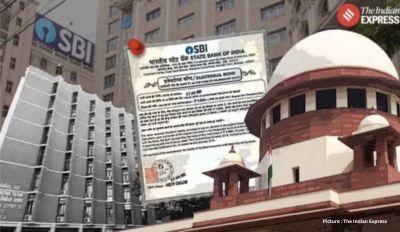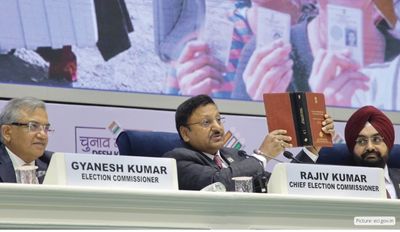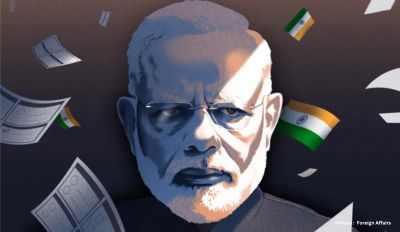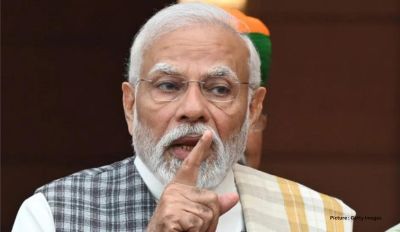Describing the allegations of surveillance through the use of the Pegasus spyware as “serious”, the Supreme Court on August 5th wondered why no one had filed an FIR if there was reason to believe that phones had been hacked. It also pointed out that the allegations first surfaced in 2019.
 Chief Justice of India N V Ramana who, along with Justice Surya Kant, was hearing eight petitions seeking an independent probe into the matter, said: “No doubt, the allegations are serious, if the reports are true.” The Chief Justice of India’s Supreme Court, while stating that he was not getting into facts of each and every case, said: “You know there are provisions under the Telegraph Act, IT Act etc to file complaints. These are the things which bother us.”
Chief Justice of India N V Ramana who, along with Justice Surya Kant, was hearing eight petitions seeking an independent probe into the matter, said: “No doubt, the allegations are serious, if the reports are true.” The Chief Justice of India’s Supreme Court, while stating that he was not getting into facts of each and every case, said: “You know there are provisions under the Telegraph Act, IT Act etc to file complaints. These are the things which bother us.”
Replying to the query on why no one had filed an FIR, Senior Advocate Kapil Sibal, appearing for senior journalists N Ram and Shashi Kumar as well as the Editors Guild of India, said: “We did not have access to materials.” The petitions, he said, had information about multiple cases of spyware infiltration.
Sibal drew the court’s attention to proceedings initiated by WhatsApp against NSO in a California court. He said according to the court order, Pegasus once activated causes the target device to connect with the malware. The malware, he said, is then enabled and data is transferred.
“Pegasus is a rogue technology and infiltrates lives without our knowledge. All that it requires is a phone and it enters into our lives and then hears and surveys every movement. It’s an assault on privacy, human dignity and the value of our republic,” Sibal said, adding that “it penetrates into our national Internet backbone”.
He said the government, in its statement in the Parliament, had not disputed that Indians were among those targeted, “If the Government of India knew this was happening, why did it not take action against NSO Technologies? Why did they not lodge an FIR? This is about the privacy and safety of Indians,” he said.
The bench did not issue notice to the Centre and instead asked the parties to first supply copies of their petitions to the government counsel after which it would hear the matter again on August 10. “Somebody should appear for the government to take notice,” it said, making clear that the question of issuing notice will be considered after hearing from the government as well.
The bench indicated that most of the petitions were based on news reports and should have had something more for the court to set the legal process in motion. “You all know that there is a prima facie material, as well as credibility of reports, on the basis of which we can order an inquiry etc. Unfortunately, from what I read from the writs, this matter came to light in May 2019. I don’t know if any effort was made. Persons who have filed the writ petitions are knowledgeable persons having resources. They should have made more effort to bring forth more material… Some of the petitioners who have filed the pleas are not affected and some claim their phones are hacked. But they have not made efforts to file a criminal complaint,” the CJI said.
This led to exchanges in the courtroom with senior advocates representing the petitioners making their submissions on the pleas. Appearing for two journalists whose names figured in the alleged Pegasus target list, Senior Advocate Arvind Datar said there is no provision in the IT Act, 2000 for filing an FIR.
The criminal remedy in the Act, Datar said, relates to infringement of privacy in relation to bodily parts while the identity of the hacker needs to be known in civil remedy for damages. “Privacy is about the privacy of one’s bodily area. So there are no provisions for me to file an FIR… Someone has definitely accessed my computer and remedy is damages, and for this we should know who did (it). We need to know if the allegations are true,” he said.
Referring to the Aadhaar judgment, Datar said the Supreme Court had stated that privacy permeates all through Part 3 of the Constitution. Urging the bench to take cognizance, he said: “Today 300 people have come to light. Who else will take cognizance of this apart from the judiciary? We don’t know if it is 300 or 3000 individuals.” He said this can be taken up as a class-action case.
Senior Advocate Shyam Divan, appearing for academician Jagdeep Chhokar, said: “These media organizations enjoy a very high degree of credibility. A whistle-blower released the numbers… These numbers are of judicial and Constitutional authorities. Mr Chhokar is an academician, and for a private citizen to find a spyware installed on his phone is equal to war against a citizen by the government,” he said.
Asked if he had filed any FIR, Divan said “no” and “this case requires an independent probe by a fact-finding committee” under a bureaucrat of the highest level, preferably the Cabinet Secretary.
“My question is if you know the phone is hacked, then why wasn’t an FIR lodged. That is the only question,” The CJI told Senior Advocate Meenakshi Arora who appeared for Rajya Sabha MP John Brittas. Arora said that former IT Minister Ravi Shankar Prasad had said in Parliament that no unauthorized interception was done. “If you have said in 2019 that you have not done, and now it is known that it has been done, there is a need to investigate”, she said.
“You all know that there is a prima facie material, as well as credibility of reports, on the basis of which we can order an inquiry etc. Unfortunately, from what I read from the writs, this matter came to light in May 2019. I don’t know if any effort was made. Persons who have filed the writ petitions are knowledgeable persons having resources. They should have made more effort to bring forth more material… Some of the petitioners who have filed the pleas are not affected and some claim their phones are hacked. But they have not made efforts to file a criminal complaint,” the CJI said.








